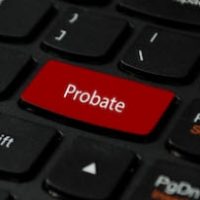What does a Personal Representative do During a District of Columbia Probate Administration?

The personal representative, also called the executor, is someone who has been appointed to administer the estate of someone who has passed away. They are required to settle all debts and distribute the estate’s assets in the most efficient manner possible. Their main duty is to protect the estate and honor the decedent’s wishes. While this sounds easy, it’s a lot of responsibility and often more work than most people realized when they agreed to be the personal representative.
If you have questions about the duties of a personal representative during a probate, it’s important to speak with an experienced Washington DC probate lawyer.
Here’s a look at some of the main duties of a personal representative.
Identification of Assets
Once the court has approved the appointment of the personal representative, his or her first task is to identify and collect all of the decedent’s assets. Identifying assets extends beyond real estate and bank accounts. There may be a number of assets that you would’ve never considered.
Don’t assume random items are not worth anything either. It’s important to have assets appraised, especially if there is a chance that something could be valuable. You don’t want to throw something away only to find out later it was a very valuable antique. It could land you on the receiving end of a breach of fiduciary duty claim.
Paying the Estate’s Bills
Paying the decedent’s bills is one of the most important duties. Existing debts plus funeral costs are two of the more common bills the personal representative will run across. Creditors will need to be put on notice as well as investigate the validity of any claims presented against the estate. Depending on the claim, the personal representative may have to utilize other professionals, like an accountant. Any expenses incurred during this phase will be paid back out of estate funds.
Filing a Lawsuit
There may be specific scenarios where the personal representative has to initiate a lawsuit. This may be the only way to retrieve assets or protect the estate from an invalid claim. There may be situations where you need to file a lawsuit to retrieve assets that belong to the estate. This can include pursuing a claim against the decedent’s employer who refuses to pay the final wages owed.
Finalizing the Estate
Finalizing the estate is also known as winding down. This part of the process typically starts with the representative opening a bank account specifically for the estate, which allows heirs, the IRS, the courts, and anyone else to review exactly what was involved and what the representative paid out.
Next, finalizing the estate will include distributing assets to beneficiaries and heirs. The representative must distribute the assets according to the express wishes of the will or pursuant to the intestate laws if the decedent did not have a will.
Contact a Washington, D.C. Probate Attorney
If you have questions about what a personal representative’s duties are in a probate administration, contact the experienced team of attorneys at Tobin O’Connor Concino P.C. Call our office at 202-362-5900 to schedule an initial consultation today.
https://www.tobinoconnor.com/what-is-an-executors-role-in-a-washington-dc-probate/


